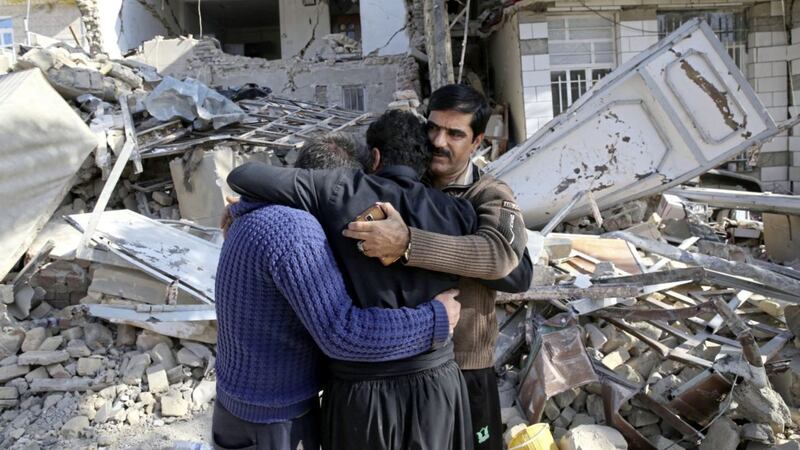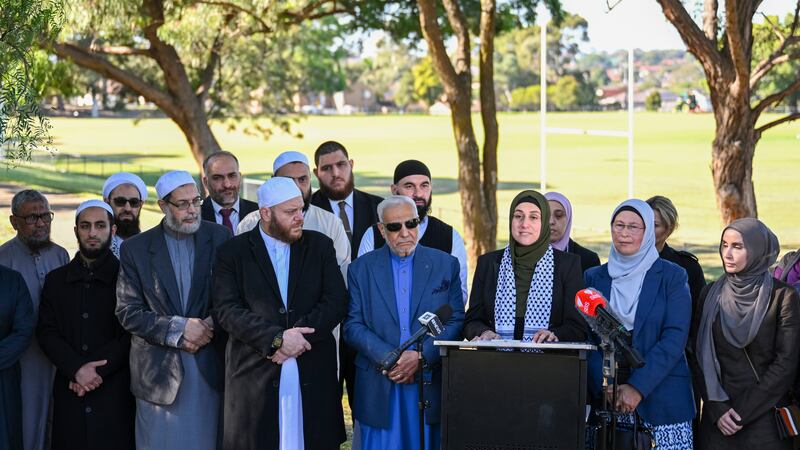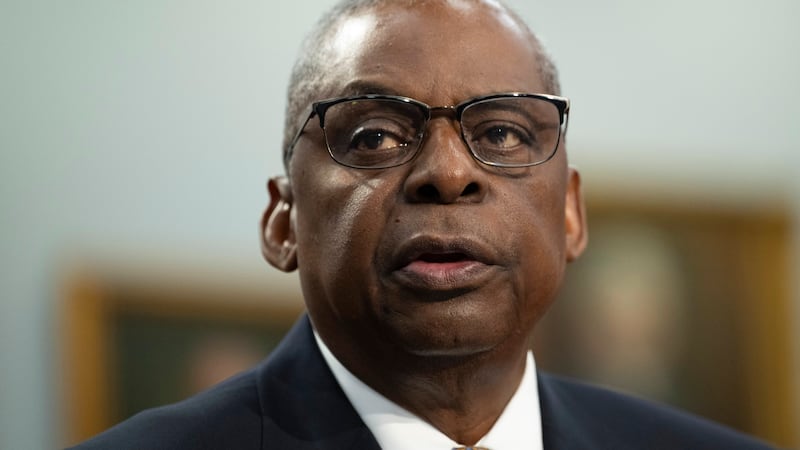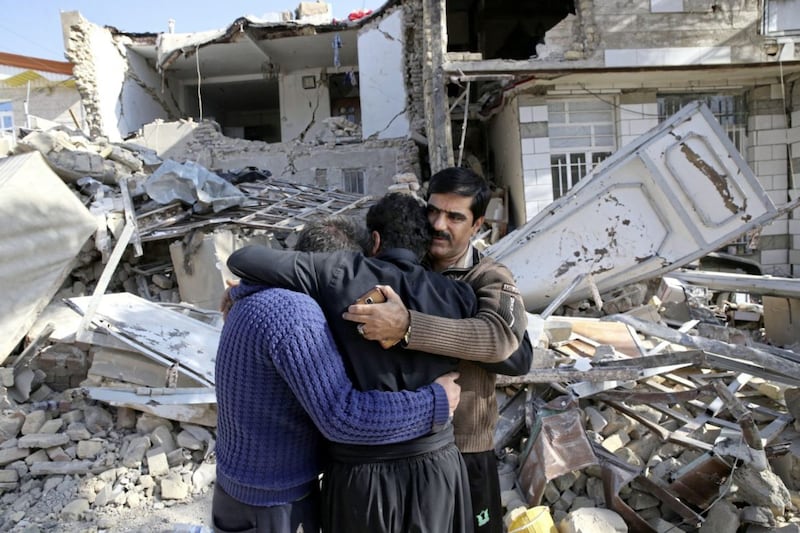Many survivors in Iran are still awaiting aid on Wednesday, three days after a powerful earthquake along the Iraq border killed hundreds of people.
The delay in getting help to the needy came as public order broke down in many instances where aid was being delivered in the Iranian Kurdish region.
Officials said families that were not affected by the quake rushed and took some of the aid supplies.
The police said they deployed forces to secure aid distribution and prevent more chaotic outbreaks.
Many in the Kurdish town of Sarpol-e Zahab - home to half the casualties from the quake - said they still have not received aid and they needed help to remove debris so they could try to get to their damaged homes and retrieve some essential belongings.
Reports said more than 12,000 tents were distributed in the area, though more than 30,000 houses were affected by the quake – 15,500 of them completely destroyed.
Iran's supreme leader Ayatollah Ali Khamenei called for continued aid shipments to the area ahead of the "cold weather and difficult cold season".
Iranian officials blamed the slow aid in part on the chaotic situation in the stricken region.
Interior minister Abdolreza Rahmani Fazli told an open session of the parliament on Wednesday that a total of 36,000 tents had been sent to the region, including those already distributed.
Many families unaffected by the earthquake went to aid distribution places and took supplies that were not meant for them, Mr Fazli said.
Because of a lack of public order, some dispatches of aid deliveries were "blocked" before reaching their destination, he continued.
Morteza Salimi, of the Iranian Red Crescent, told state TV that despite there being enough aid supplies, "there were some problems in distributing the relief ... safety and security were violated".
Iran's deputy police chief General Eskandar Momeni visited the area and said his forces would ensure "security for the distribution of assistance".
Deputy health minister Qasim Janbabaei warned of the dangers of water-borne infectious diseases amid damage to health centres and water chlorination plants. He said the area also needs antibiotics.
The region, which was already rebuilt in the decades since Iran's devastating 1980s war with Iraq, was hit by the magnitude 7.3 earthquake on Sunday night.
The official IRNA news agency said 530 were killed while state TV put the number at 432.
In Iraq, nine people were killed and 550 were injured, all in the country's northern, semi-autonomous Kurdish region, according to the United Nations.





